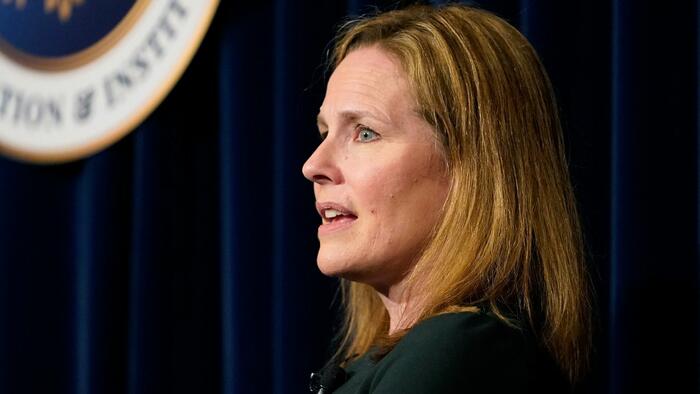Supreme Court Rejects Trump’s Request To Stop Sentencing In Hush Money Case After Justice Barrett Sides With Liberals
The Supreme Court on Jan. 9 rejected President-elect Donald Trump’s request to halt proceedings in his New York business records case, removing a potential barrier to sentencing scheduled for Jan. 10, The Epoch Times reports.
The brief order – which ensures Trump will be branded a “convicted felon” at his inauguration in 10 days – noted that Justices Samuel Alito, Clarence Thomas, Neil Gorsuch, and Brett Kavanaugh would have granted the application. In other words, Trump appointee Amy Coney Barrett sided with the liberals on the bench. In retrospect, CNN belief that Justice Barrett might be the “last best hope for Supreme Court liberals” proved to be accurate.
Thanks to Barrett’s defection, the Supreme Court will stand by as Judge Juan Merchan sentences Donald Trump over felony offenses that many legal analysts consider to be a sham.
The Supreme Court offered two reasons it said it refused to grant the application. “First, the alleged evidentiary violations at President-elect Trump’s state-court trial can be addressed in the ordinary course on appeal. Second, the burden that sentencing will impose on the President-Elect’s responsibilities is relatively insubstantial in light of the trial court’s stated intent to impose a sentence of ‘unconditional discharge’ after a brief virtual hearing,” a note on the Supreme Court’s docket read.
After the Supreme Court’s decision, Trump wrote on TruthSocial that he appreciated the “time and effort of the United States Supreme Court in trying to remedy the great injustice done to me.”
He went on to say that he was innocent and would appeal the case.
“For the sake and sanctity of the Presidency, I will be appealing this case, and am confident that JUSTICE WILL PREVAIL,” Trump wrote.
Trump’s application for a stay was submitted on Jan. 8 and argued that “the prospect of imposing sentence on President Trump just before he assumes Office as the 47th President raises the specter of other possible restrictions on liberty, such as travel, reporting requirements, registration, probationary requirements, and others—all of which would be constitutionally intolerable under the doctrine of Presidential immunity.”
New York Supreme Court Justice Juan Merchan has indicated that he wouldn’t impose a punishment including incarceration. He denied Trump’s request to halt proceedings as did two state appeals courts this week.
Trump told the U.S. Supreme Court that Merchan had erroneously admitted certain evidence of his official acts as president and failed to acknowledge a form of immunity for presidents-elect. He asked the court to take up his case and consider those issues, as well as whether he was entitled to an automatic stay due to an appeal on presidential immunity.
Trump was found guilty in May on 34 felony counts of falsifying records in relation to an alleged payments to adult film actress Stephanie Clifford. Merchan is expected to enter a judgment of conviction on Jan. 10 and potentially offer a statement criticizing Trump’s behavior.
Manhattan District Attorney Alvin Bragg, who brought the indictment against Trump in 2023, told the U.S. Supreme Court on Jan. 9 that it should reject Trump’s application and allow the state courts to continue handling the issue. Bragg said Trump was asking for an extraordinary intervention by the justices and that Trump had not yet exhausted his state-court remedies.
“Any stay here risks delaying the sentencing until after January 20, when defendant is inaugurated and his status as the sitting President will pose much more severe and potentially insuperable obstacles to sentencing and finality,” Bragg’s brief read.
The president-elect said that the opinion written by Merchan “goes against our Constitution, and, if allowed to stand, would be the end of the Presidency as we know it.”
Loading…
Read the full article here

